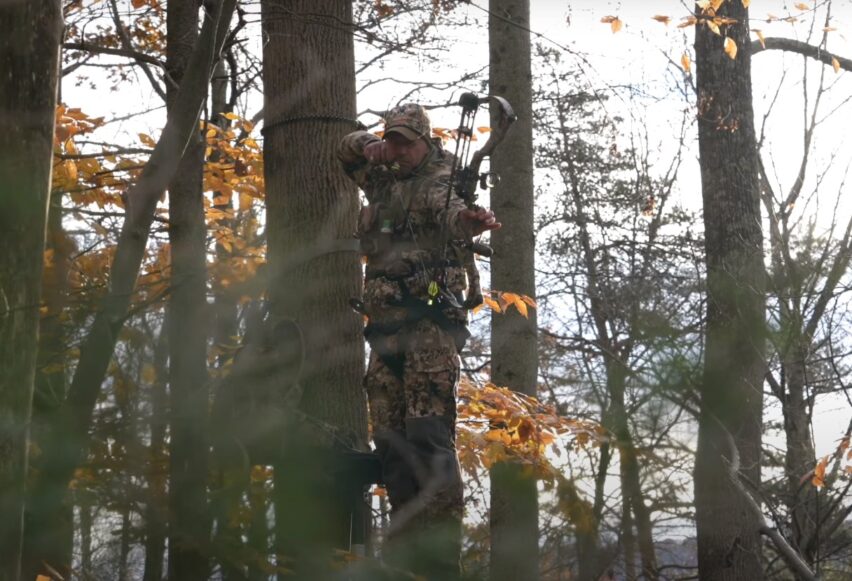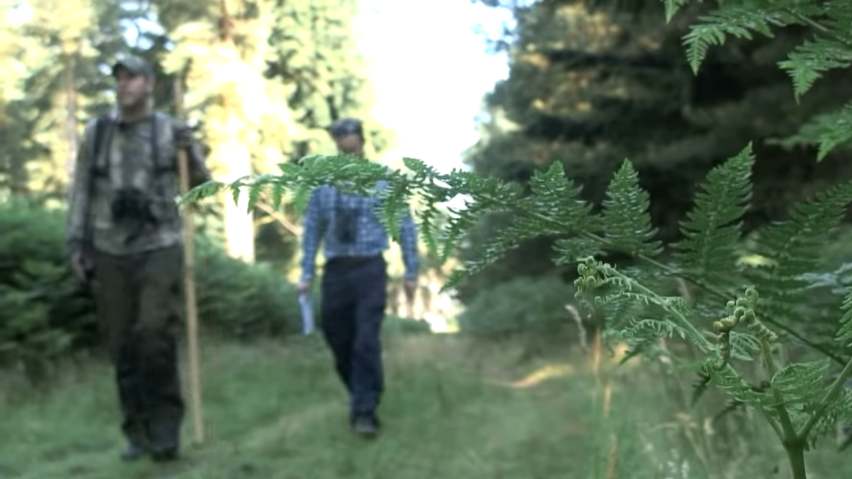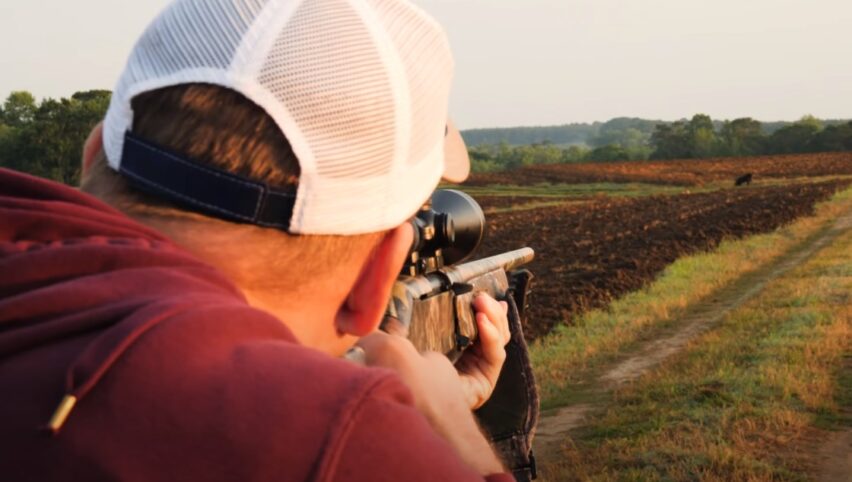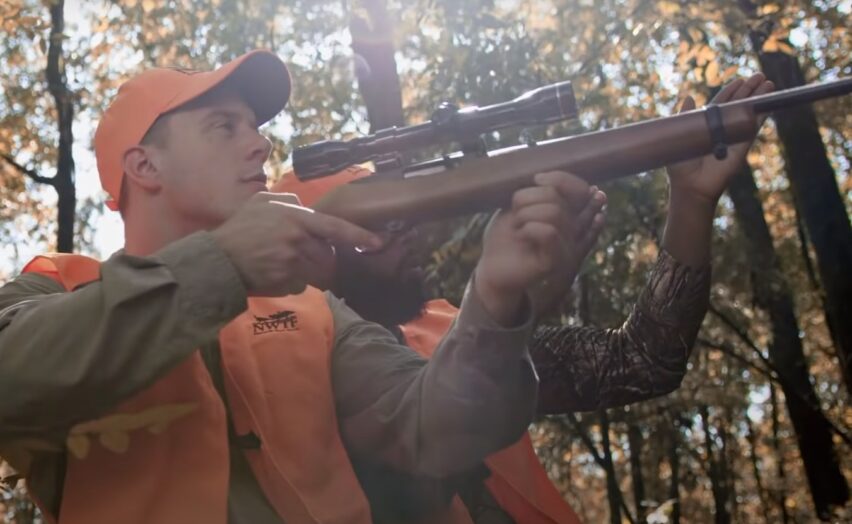A common question among landowners is whether they need a hunting license to hunt on their own property. The answer is not straightforward as it largely depends on the state’s specific laws and the type of game being hunted. We will explore more about this topic in the following sections.
Key Takeaways
- License Requirement on Private Property: In the United States, it’s a general rule that hunters need a license to hunt on private property. This is to regulate wildlife populations and conservation efforts.
- Role of State Agencies: Wildlife is considered a public resource managed by state agencies. These agencies establish hunting seasons, limits, and other regulations.
- Contribution to Conservation: License fees fund wildlife research, habitat improvement, and conservation. Hunting without a license is classified as poaching and carries legal consequences.
What is the General Rule?

The requirement for a hunting license on private property, including one’s own land, is a widespread rule in the United States. This mandate is primarily to regulate wildlife population and conservation efforts.
Each state has tailored its laws to manage the hunting of different species effectively, ensuring their numbers remain sustainable for future generations. The concept of needing a license on private property might seem counterintuitive to some landowners.
The land is, after all, their private property. However, wildlife is considered a public resource managed by state agencies. These agencies establish hunting seasons, bag limits, and other regulations to control the number of animals harvested each year.
The licensing system plays a crucial role in this management. When a hunter applies for a license, they are contributing to the state’s wildlife management and conservation efforts. The fees collected from hunting licenses typically fund wildlife research, habitat improvement, and conservation programs.
Moreover, these licenses help in monitoring and tracking the hunting activities, which is crucial for maintaining ecological balance and preventing overhunting. If a hunter decides to hunt without a license, it is classified as poaching.
Poaching not only disrupts the balance of wildlife populations but also undermines the efforts of conservation and wildlife management. Furthermore, it can lead to significant legal consequences, including fines and imprisonment.
Some might argue that hunting on one’s own land should be exempt from such regulations. However, wildlife does not recognize property boundaries. The movement of game across various lands necessitates a uniform approach to management, one that cannot differentiate based on property ownership.
In some states, landowners are afforded certain privileges, such as discounted license fees or special tags. These incentives are designed to encourage landowners to participate in the state’s wildlife management programs and to recognize their role in conservation efforts.
| State | License Requirement | Special Conditions |
|---|---|---|
| Alabama | Required for all hunters | Includes resident, non-resident, and lifetime options |
| Alaska | Mandatory | Specific game tags required for certain species |
| Arizona | Required | Special permits for species like bighorn sheep and elk |
| Arkansas | Required | Various types including resident, non-resident, and youth licenses |
| California | Required | Additional tags needed for certain game species |
| Colorado | Required | Preference point system for certain big game species |
| Florida | Required | Specific regulations for different game species |
| Montana | Required | Includes big game and bird hunting options |
| Pennsylvania | Required | Special doe licenses and bear harvest tags available |
| Texas | Required | Hunter education required for hunters born on or after September 2, 1971 |
Exceptions and Specific Regulations

While the general rule mandates a hunting license for private property, there are notable exceptions based on the type of animal and the specific state laws. These exceptions allow for the hunting of certain animals without a license under specific circumstances.
Understanding these exceptions is vital for hunters to ensure they comply with state laws and contribute to responsible wildlife management. In many states, hunting animals like coyotes, feral hogs, or other fur-bearing creatures may not require a license.
This is often due to their classification as pests or non-native species, which can harm local ecosystems or agriculture. For example, feral hogs, known for causing significant agricultural damage, can often be hunted without a license to control their population and mitigate their impact.
Similarly, coyotes, which are often seen as a threat to livestock and other wildlife, may be hunted without a license in some states. This is part of broader wildlife management strategies aimed at balancing ecosystems and protecting other species.
However, the specific regulations around such hunting activities vary significantly from state to state. Some states may have open seasons for these animals, while others might require specific conditions to be met.
It’s important to note that these exceptions are not universal and can be subject to change. States periodically review and adjust their wildlife management policies, including the regulations surrounding the hunting of certain species.
Hunters must stay informed about the current laws in their state to ensure they are not inadvertently breaking the law. Additionally, even in cases where a license isn’t required, other regulations such as hunting methods, seasons, and bag limits may still apply.
These regulations are designed to prevent inhumane hunting practices and ensure the long-term sustainability of wildlife populations.
State-by-State Variations
Each state has distinct hunting regulations, with different types of hunting licenses available.
Alabama

In Alabama, every hunter must possess a license. The state offers a variety of license types, catering to different groups. These include options for residents, non-residents, and even lifetime licenses. This comprehensive approach ensures that all hunters are accounted for under state wildlife management policies.
Alaska
Alaska’s rich and diverse wildlife necessitates a robust licensing system. Hunters are required to obtain a license, and for certain species, specific tags are needed. This system helps manage the state’s unique wildlife population effectively.
Arizona
Arizona presents a range of hunting opportunities, from big game to small game. The state provides licenses for both residents and non-residents, accommodating various hunter demographics. Additionally, Arizona issues special permits for certain species, such as bighorn sheep and elk, underlining its commitment to species-specific management.
California
California, known for its diverse habitats and wildlife, mandates that hunters have a license. For some game species, additional tags are required. This system ensures that hunting is conducted sustainably, considering the state’s varied wildlife.
Colorado

In Colorado, a state renowned for its scenic landscapes and diverse wildlife, hunters are required to have a license. Colorado offers hunting experiences from the Rocky Mountains to the Eastern Plains, with licenses available for both residents and non-residents. The state employs a preference point system for certain big game species to manage hunting opportunities fairly and sustainably.
Florida
Florida, a popular destination for hunters, mandates a hunting license for anyone pursuing game within its borders. The state’s regulations are specific to different game species, reflecting Florida’s diverse ecosystems. Youth hunting licenses are also available, promoting responsible hunting practices among younger enthusiasts.
Montana
Montana, with its expansive natural habitats, requires hunters to have a license. The state is known for its big game and bird hunting opportunities, offering various licenses to cater to the needs of different hunters, including residents and non-residents.
Pennsylvania
In Pennsylvania, hunting is a cherished tradition, and the state requires all hunters to be licensed. Pennsylvania offers special doe licenses and bear harvest tags, reflecting its diverse wildlife and commitment to sustainable hunting practices.
Texas
Texas, with its vast landscapes and diverse wildlife, requires all hunters to have a license. The state mandates hunter education for those born on or after September 2, 1971, emphasizing the importance of safety and knowledge in hunting practices.
FAQs
Can I hunt my own land in Texas?
Yes, you can hunt on your own land in Texas if you own, lease or have written permission to hunt on the property. You will need a hunting license unless you are exempt by law.
Can I shoot a bobcat on my property in Texas?
Yes, you can shoot a bobcat on your property in Texas if you have a valid hunting license and written permission from the landowner. Bobcats are classified as nongame animals and there is no closed season or bag limit for them.
Can I shoot a coyote on my property in Florida?
Yes, you can shoot a coyote on your property in Florida if you have a hunting license and landowner permission. Coyotes are considered furbearers and can be hunted year-round by any lawful means or methods on private lands.
Can I shoot a deer on my property in Florida?
Yes, you can shoot a deer on your property in Florida if you have a hunting license and follow the deer hunting regulations. You must also log and report your harvested deer to the Florida Fish and Wildlife Conservation Commission.
Can you hunt on your own land without a license in Ohio?
No, you cannot hunt on your own land without a license in Ohio unless you are a resident landowner, spouse, or their children or grandchildren under 18 years of age. You must also own, lease or have written permission to hunt on the land.
Summary
While the general rule across the United States requires hunters to obtain a license even when hunting on their own property, there are significant variations and exceptions based on the state and the type of game. These regulations are in place to ensure sustainable wildlife management and conservation.
Each state determines its hunting laws to its specific ecological and conservation needs, which means hunters must be aware of and comply with their state’s specific hunting regulations. Also, if you are interested in some traditional hunting methods, such as by using the bow and arrow, you should check start practicing the Bow Sight Adjustment.

